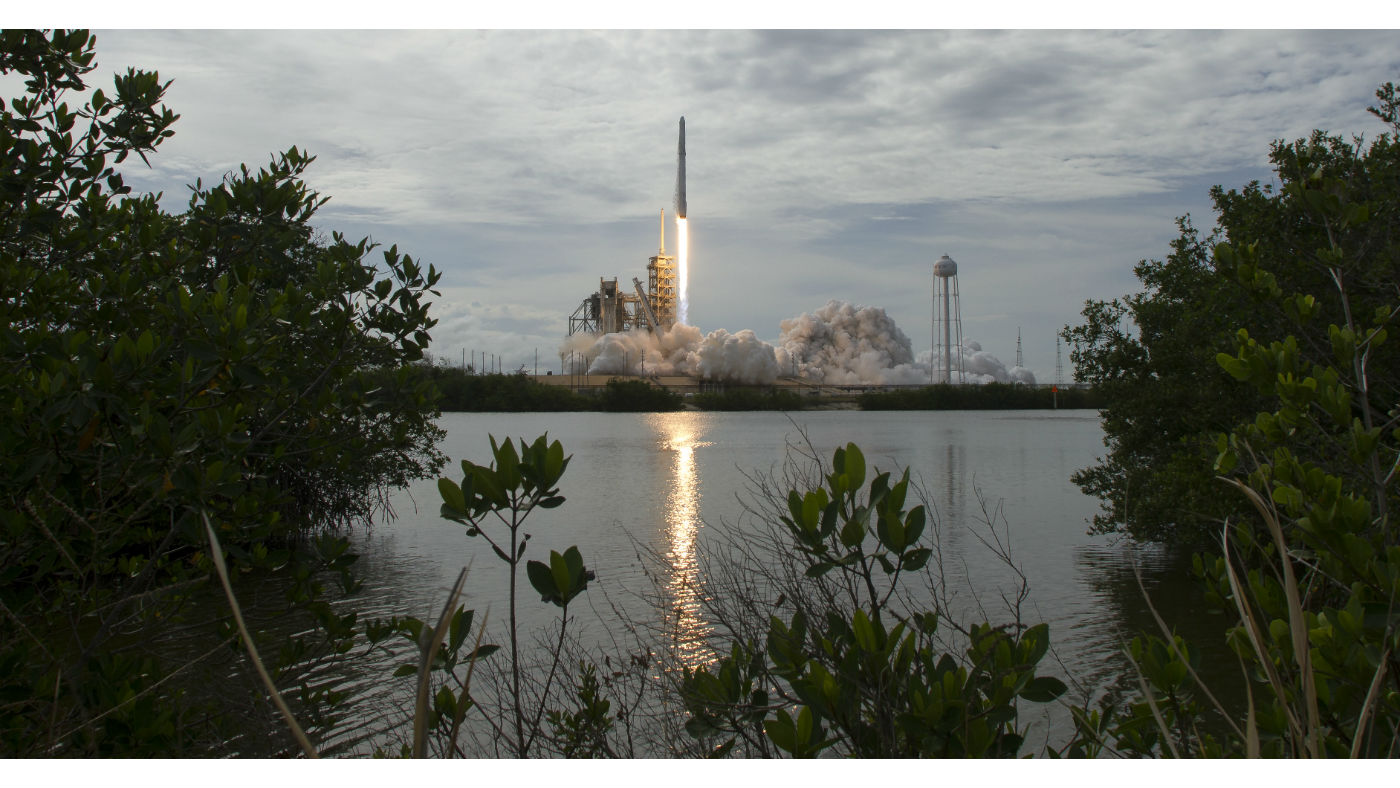
- Select a language for the TTS:
- UK English Female
- UK English Male
- US English Female
- US English Male
- Australian Female
- Australian Male
- Language selected: (auto detect) - EN
Play all audios:
Elon Musk's SpaceX rocket company has launched its second Falcon 9 rocket in 48 hours, taking another step towards renewable space flight. The craft was sent into orbit to put up ten
Iridium satellites to improve mobile phone coverage. It was fitted with a "more durable set of grid fins" to stabilise the rocket "as it descends back to Earth", reports
ArsTechnica. SUBSCRIBE TO THE WEEK Escape your echo chamber. Get the facts behind the news, plus analysis from multiple perspectives. SUBSCRIBE & SAVE SIGN UP FOR THE WEEK'S FREE
NEWSLETTERS From our morning news briefing to a weekly Good News Newsletter, get the best of The Week delivered directly to your inbox. From our morning news briefing to a weekly Good News
Newsletter, get the best of The Week delivered directly to your inbox. Previous fins had "caught fire due to atmospheric heating", adds the site. The new versions "are
designed for multiple re-uses as SpaceX seeks to more toward rapid reuse of its first stage booster". It's a significant development into frequent and reusable space flight. Musk
said the updated Falcon 9 "should be capable of an indefinite number of flights with no service". The rocket launched on Sunday at the company's Vandenberg Air Force base in
California, two days after a Falcon 9 last used in January went into orbit to deploy another batch of satellites, says TechCrunch. Developing rockets that can be reused for multiple flights
could reduce the cost of space travel by around 30 per cent, Gwynne Shotwell, president of SpaceX, told Wired. The company sent its first used Falcon 9 into orbit in March, when the rocket
successfully returned to orbit and landed on a floating platform in the Atlantic Ocean. Previously, rockets could only be used on one mission as their booster jets and hulls would burn up on
re-entry into the atmosphere. One of the few exceptions was Nasa's space shuttle, although the BBC says "the complexities of servicing the shuttle system after every flight
swamped any savings". Musk's next milestone is to launch two rockets within 24 hours of each other.







:max_bytes(150000):strip_icc():focal(719x369:721x371)/henry-cynthia-helen-c5055a83ab434cb5b56076c970ddae35.jpg)